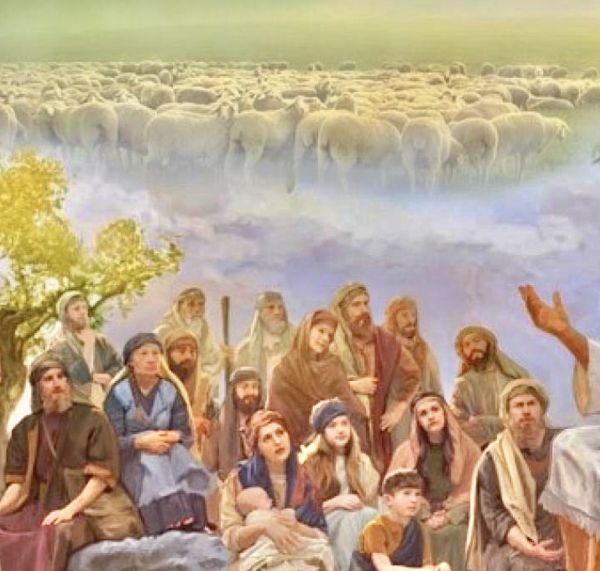In today's Gospel Jesus invites his own to a deserted place, in the background. The throng of the crowd did not even allow them to eat.
But the Lord first of all feels compassion for the people who followed him, because they were like sheep without a shepherd.
Assiduous contemplation and purity of life had made Francis powerful, by grace, even over the forces of evil, making him a credible witness to the Lord through numerous healings.
The Sources eloquently illuminate in this regard:
"People of all ages [...] ran to see and hear that new man.
He pilgrimaged through the various regions, fervently proclaiming the Gospel; and the Lord cooperated, confirming the Word with the miracles that accompanied it.
Indeed, in the name of the Lord, Francis, preacher of the truth, cast out demons, healed the sick" (FF 1212).
Once "I do not know how to qualify the horrible illness from which a brother suffered, some attributed it to the presence of an evil devil.
The poor man would often throw himself to the ground and, squinting his eyes in a horrible way, he would foam at the mouth; his limbs would now contract, now stretch, now stiff, now bent and twisted [...].
The saint Francis had immense compassion for him, went to him, blessed him, humbly praying to God, and the sick man obtained prompt and complete health and never suffered such an evil again" (FF 440).
"In Città di Castello a woman was possessed by an evil and furious spirit: as soon as the Saint [...] had obediently ordered [him to come out of her], the demon fled full of indignation, leaving the poor obsessed woman free in body and soul" (FF 1219)
Francis had married the Light, obscuring the power of evil.
The Minim had compassion on the tired and exhausted crowds that followed him and, in prayer, his constant refuge, he asked God for labourers for the abundant harvest.
He also asked his brothers to pray much for this cause.
Like Jesus, the Saint travelled through all the towns and villages, preaching the Gospel of the Kingdom and healing every sickness and every infirmity.
«And as he went out he saw many crowds and had compassion on them, for they were like sheep that have no shepherd, and he began to teach them many things» (Mk 6:34)
Saturday, 4th wk. in O.T. (Mk 6:30-34)












